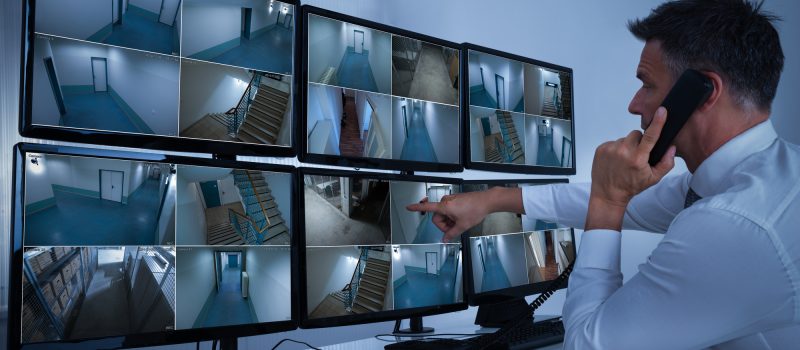With the cost of the average data breach now hovering around $3.6 million, most businesses can’t afford to suffer compromised data.
Between the lost business, lawsuits, and a damaged reputation, leaving your company unsecured could cause financial ruin. If you know the type of security that you need for your business, you could spare yourself the trouble and enjoy smooth sailing for you and your company.
Here are 5 considerations you need to make when deciding on the right security system.
1. Physical or Digital Products
You’ll have different security needs whether you have digital or physical products. Businesses that have physical products merely need to keep the area around them secure. If your company makes and distributes digital products, you might have a much harder time keeping things secure.
For a business with a physical product, there are still lots of ways to sneak products out. Low security at your storage facility, loading dock, or distribution center could mean lots of products go missing. Visitors could sneak products out in their pockets or knapsacks.
They could even load them up into their own vehicles and drive off the lot, never to be seen again. You’ll need monitored video surveillance if you hope to have any chance of catching them.
If you’ve got digital products, you won’t need to worry about them being driven off in a vehicle. Even worse, you could have them sent off to another country, duplicated 100 times over, and sent to 100 more places in just a few keystrokes.
To protect your products, you need to have the right kind of security system. While you can keep people off your property, you’ll also need to keep people off your network. To make this happen, you need to make sure your IT has enough money to secure your network.
2. Different Levels of Access
In a lot of facilities, people need to maintain different levels of access to maintain secure boundaries but also get their work done. With the combination of different security systems, you can monitor access while giving your employees freedom of motion.
Having a scannable badge system or unique ID codes connected to a keypad system will keep employees from accessing higher level data and areas. Your highest level employees should be able to move freely while your temporary or new employees will have limited access. Once they need to move to a new level, their access should be able to be increased in a few keystrokes.
You need to decide whether or not you’ll allow visitors to have any freedom of motion. In this case, you’ll need to be able to create temporary ID badges. Temporary ID badges will have to be easily created by your front desk security staff.
You’ll need a machine that can create them simply without requiring a lot of technical knowledge on the part of your staff.
3. Armed Security or Just Video Monitors
For some facilities, you might find you need to hire armed security. For others, a simple video monitor might suffice to allow you some accountability. It depends on the area, how much damage could be done by a nefarious actor there, and whether or not you have the budget for 24-hour staff.
Armed security isn’t necessary for every kind of facility. If you could face serious ramifications for the leaking of certain company secrets, you might want armed security for the intimidation factor. However, if you just need to know who is going in and out of a facility, video monitors could do. You could have one security person on hand to watch them all.
Armed security might be more trouble than its worth. Unless you’re dealing with important government or religious figures, armed guards aren’t necessary to protect the servers of an insurance company. While you might want to make sure the area is secure, you don’t need overkill.
Staffing alone is reason enough to reconsider around-the-clock security.
4. Proximity Issues
If there could be problems when a nefarious actor comes close to your building, you might want to keep people from reaching you. If you are worried about someone crashing a truck into the side of your building or launching an attack, that’s a reason to keep people off your site.
While a mundane corner of your parking lot might not seem that important, you may find that you need to cover every inch of the perimeter with security. Those corners could be located near an unsecured WiFi network that a hacker could get access to.
If proximity is an issue, your security system should entail a fence that has digital and secure controls. Keeping people off a site that could b compromised is the first line of defense for you and your business.
5. Device Issues
You could face issues just based on the kinds of devices people use on your site. If people are bringing their own devices, they’re also bringing their baggage with them.
If they have weak passwords on their machines and their accounts, they could face a takeover. Once they’re hacked into, their devices could be made to attack your site and your servers.
Device issues require a very specific kind of security. It may require that you prohibit people from taking their devices home to do extra work. If this is the case, you’ll have to have your devices wired to your site, connected to an alarm system.
The Type of Security Depends on the Business
No matter what type of business you run, there are a few basic elements of security you’ll need. Beyond that, the type of security to keep people off your site physically and digitally will depend on specifications you make. Once you’ve got a secure facility, you can be sure that both employees and customers will be happy knowing that the site is free from intruders.
If setting up your business security system has you thinking about your home system, consider these options before you make a decision.

